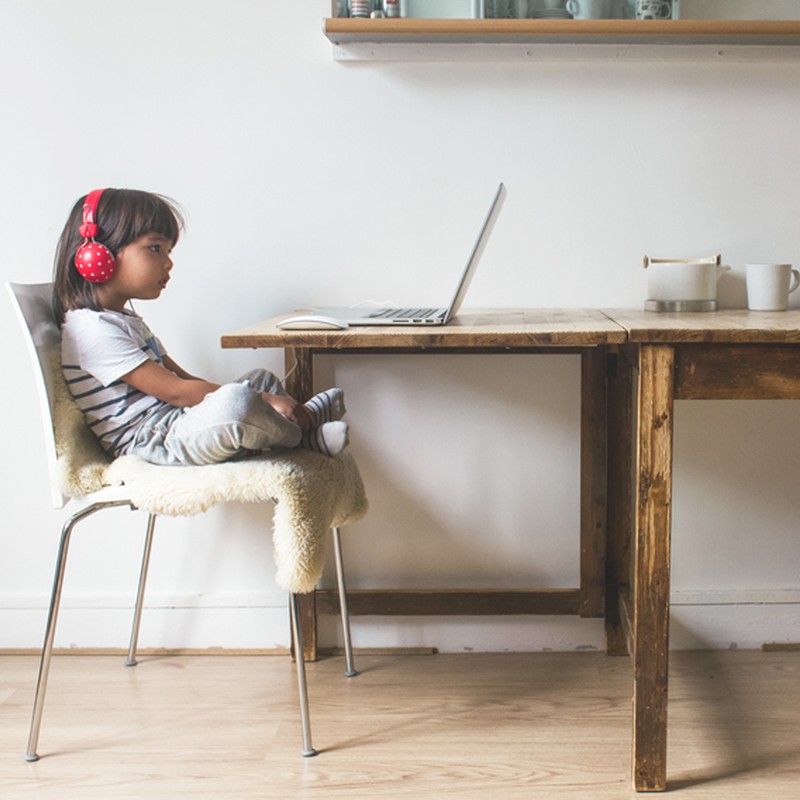Should You Home School Your Children?
With last week’s news that the parents of child actor Lillian Hardy face legal action over concerns about their daughter’s education, the spotlight has again been switched on home schooling. Lillian, the 12-year-old star who played the title role in the West End’s production of Matilda for six months last year, has never attended school; her parents claim she’s “thrived” as a result of home schooling, but concerns have been raised with her local council. As a result, Lilian’s parents Edward Hardy and Eileen Tracy were given 15 days to enrol her in a local school or prove she’s receiving an adequate education.
In the UK, parents are under no legal obligation to send their children to school – but are required to provide them with an education at home if they choose not to go. You don’t need to be a qualified teacher to educate your child at home, nor do you have to follow formal rules about how or when you teach. Your local authority may ask for periodic meetings to assess the progress of your child’s learning gov.uk.
Nobody knows the exact number of children being educated at home in the UK, because many parents are under no obligation to tell the authorities. A freedom of information request by the BBC found 36,609 children were in home education – a number which rose 65% between 2009 and 2015 – but the true figure is likely to be even higher.
Philosophical or religious beliefs are commonly the reason parents choose to educate their children at home. But many parents choose to take their children out of school because they are disillusioned with the number or tick-box exercises, tests and exams their children are put through, while others take their children out because they’ve been bullied, are generally unhappy or unable to concentrate in a busy classroom environment. Other parents choose to home educate their children because they weren’t able to get them a place at their school of choice. The process of taking children out of school starts with writing a letter to the head teacher of the school, who is then responsible for alerting the local authority of the decision.
A major concern around home schooling is the quality of education children receive, particularly those in secondary education: in schools 11-18-year-olds have teachers specialised in particular subjects, while those at home could be taught by parents who struggle to grasp the topics themselves. Another commonly cited flaw is the lack of life experience and social learning home schooled children are exposed to with many critics believing home schooled children find it harder to interact with other children.
The Office for Standards in Education (Ofsted) also reported concerns last year that extremist groups are encouraging parents to pull children out of mainstream education under the guise of home schooling.
PROS OF HOME EDUCATION:
- Individual attention and instruction: According to website Home Education in the UK the extremely high adult-to-child ratio of home schooling allows you to give far more attention to each child than a teacher with a class of up to 30 pupils ever could.
With a home education, you can also tailor each child’s education precisely, working at their pace. While a school may take a term to cover a single topic, a home educator could cover these topics in shorter time periods; an hour or two may be sufficient to introduce a maths or history topic or it may take over a year for a child to grasp something which, in a school situation, would be rushed through, leaving them ‘behind’.
- Children’s interests can be followed: Some home educators choose to use a curriculum or follow school subjects, there’s far more scope for encouraging children to follow their own interests and get a head start in areas they may want to pursue a career in.
- Flexibility with holiday: With education authorities becoming stricter about authorised absences, holidays or day trips in term time are almost impossible for children in school – but with home education you can take a break whenever you wish and take advantage of off-season travel. Many home schooling parents make use of this to take their children on inspirational, educational trips all over the world.
CONS OF HOME EDUCATION:
- It can be an expensive, full-time job for parents: From textbooks to art supplies, writing materials to musical instruments, all equipment must be paid for out of your own pocket, rather than supplied by a school. If your children want to take GCSEs or A-levels, even if they can study them at home, there’s a fee for every exam taken as a private student. On top of this, if you switch from working to become a full-time tutor to your children, you’ll experience the loss of your income, meaning less money for resources to teach them with.
- Fewer friends: Some children belong to youth groups or are friendly with neighbours, however it can be trickier to meet people and make friends when you’re educated at home. Even though there are more opportunities of mixing with local people of all ages, home education can feel isolating – particularly if you live in an area where there are no other home educating families around. Having your children around constantly can also take a toll on your relationship with them and become overwhelming at times.
- Applying for university will be harder: It’s difficult to apply for university if you haven’t taken A-levels as it’s harder for institutions to calibrate your proficiency against that of other pupils. At the same time, home educated students don’t have careers advisors to help or head teachers to give references. Many home schooled pupils go on to be successful in further education but the process of getting there can be more complex.
Useful Resources For Home Schooling…
- My Tutor
Through the website My Tutor parents can find suitable teachers to teach online lessons in specific subjects – ideal for parents who aren’t confident teaching specific areas.
- Homeschool Helper
An app Home School Helper Online to help home schooling parents plan lessons, track student progress, calculate grades and plan field trips.
- Meetup
The popular app Meetup can connect local families home schooling their children – it’s an opportunity to share tips, discuss problems and pool ideas.
DISCLAIMER: We endeavour to always credit the correct original source of every image we use. If you think a credit may be incorrect, please contact us at info@sheerluxe.com.






